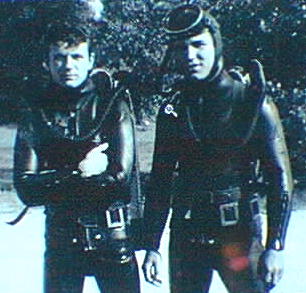I've done one assist of a diver on the surface that was working himself into a panic and he had his mask around his neck. It was the shouting of "I can't breathe, help!" and the flailing around of his arms which clued me in to the distressed diver situation.
I use a long hose, so I have a bungee necklace on my backup reg. That means if I put the mask down there it restricts access to one of my breathing regulators. I've actually noticed before (on a shore dive) that my OPV was stuck open as I was walking down to the waterline -- that incident made me reconsider a few things about my gear, which was that the mask does not go around the neck and obstruct the bungee'd regulator, and that I always inflate my wing enough to check that the OPV is holding pressure (using my elbows to press back on my wing) before entering the water.
So, I will not do the mask-around-neck thing. I could do the mask around back of head thing, but it offers no benefits in not losing the mask (and I have a big head, the mask is not going to easily come off it). I also mitigate mask loss issues by having a backup mask in my pocket and a backup backup mask in my save-a-dive kit. In any kind of heavier surface conditions I'll just keep my mask over my eyes so that I can see when the waves go over my head. I've never lost a mask yet. I expect that if I do lose a mask it'll most likely be when I take my hood off and accidentally launch it off a boat because I forgot it was up there -- but that's okay, I've had my eyes on some other masks I'd like to try out, but I can't really justify the purchase when I've got three equally good masks that I can use right now...
So:
- obstructs the backup reg when around neck
- not actually a sign of panic
- mask loss not an issue (for me anyway)
- have backup masks if I do lose one


